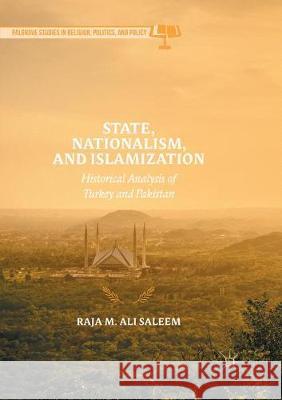State, Nationalism, and Islamization: Historical Analysis of Turkey and Pakistan » książka
topmenu
State, Nationalism, and Islamization: Historical Analysis of Turkey and Pakistan
ISBN-13: 9783319852942 / Angielski / Miękka / 2018 / 303 str.
Kategorie BISAC:
Wydawca:
Palgrave MacMillan
Seria wydawnicza:
Język:
Angielski
ISBN-13:
9783319852942
Rok wydania:
2018
Wydanie:
Softcover Repri
Ilość stron:
303
Oprawa:
Miękka
Wolumenów:
01











